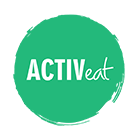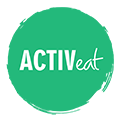The vegan diet is on the rise, with more people deciding to become vegan whether motivated by health, concerns for the environment, or ethical treatment of animals.
A vegan diet focuses on plant-based food and beverages and abstaining from the consumption of all animal products and byproducts. The goal is to eliminate the use and suffering of living beings.
Although there are numerous health benefits of going vegan, there are concerns about its sustainability and nutritional deficiencies associated with it.
Here we’re focusing on the dietary aspect of veganism that can help you make an informed decision about your journey into veganism.
What is Veganism?
“Veganism is a way of living which seeks to exclude, as far as is possible and practicable, all forms of exploitation of, and cruelty to, animals for food, clothing or any other purpose.” – The Vegan Society
Essentially vegans follow a plant-based diet and steer clear of meat, fish, dairy products (including eggs), and honey. Along with dietary restrictions, veganism also eliminates the use of products derived from animals like leather, wool, silk, and fur, cosmetics, and medications tested on animals, boycotting places that place animals in captivity like zoos or use them for entertainment such as circus, races, restaurants, etc.
The vegan diet is not automatically a low-carb or low-fat diet. It’s about cutting the meat, not the macros.
Vegan diets tend to include plenty of fruits, vegetables, beans, nuts, and seeds. Eating a variety of these foods will provide a wide range of important vitamins, minerals, healthful fats, and protein. However, some key nutrients come from consuming animal products. These nutrients include iron, protein, calcium, vitamin B-12, and vitamin D.
Some adopt this lifestyle for its environmental benefits while some people choose to follow the vegan diet as it is thought to be one of the healthiest because it includes plenty of legumes as well as fruit and vegetables.
Vegan diets tend to be rich in nutrients and low in saturated fats. Research suggests that when done right the diet can aid in weight loss, improve heart health, protect against cancer, and lower the risk of type 2 diabetes.
Why Go Vegan?
There are many reasons why people choose to go vegan, but there seem to be three main motivations behind their decision: health, ethics, and the environment.
Environment
Research from the University of Oxford found that a global switch to diets that rely less on meat and more on fruit and vegetables could save up to 8 million lives by 2050, reduce greenhouse gas emissions by two thirds, and lead to healthcare-related savings and avoided climate damages of 1.5 trillion USD.
Another study published in the journal Nature, also concluded that there are positive impacts for reducing your meat intake and going vegan too. Reducing animal product intake could cut global greenhouse gas emissions by more than 50%.
And with the world’s population set to hit 10 billion by 2050, the environmental costs of the food system could rise by as much as 90 % over the next two decades.
Animal agriculture contributes more greenhouse gas emissions than all of transportation combined. It is estimated that animal agriculture is also responsible for up to 91% of deforestation.
2500 gallons of water are needed to produce just 1 pound of beef, 477 gallons to produce a pound of eggs, and almost 900 for cheese, and 1000 gallons to produce for a gallon of milk.
Animal agriculture is the leading cause of species extinction, ocean dead zones, water pollution, and habitat destruction. We could see fishless oceans by 2050.
And although we grow enough food to feed 10 billion people, much of the world goes hungry.
Shocking as these facts are, we do not expect everyone to go vegan, but adopting a healthier and more environmentally sustainable lifestyle, decreasing meat consumption can be a step in the right direction.
Ethics
Many people go vegan simply because of their love for animals.
Understanding and learning about animal atrocities behind closed doors is what pushes many to make the switch. And avoiding animal products and byproducts is a way to stop the monetary support towards animal cruelty and death.
The Vegan society notes that about 60 billion land animals and over a trillion marine animals are used and killed to be used in the markets every year.
Even animals living on organic farms end up in slaughterhouses. Animals kept in zoos for entertainment purposes, in captivity, on race fields, being used for research and testing get exploited daily for human benefit and entertainment.
A vegan lifestyle encourages you to boycott such industries and stop this unnecessary exploitation of animals, their life and freedom.
Want to learn more? We recommend these documentaries :
- For your health, watch Forks Over Knives.
Health
Fundamentally veganism is a plant-based diet that avoids the consumption of all animal products.
The vegan diet is generally considered to be higher in fiber and lower in cholesterol, protein, calcium, and salt than an omnivorous diet – but there are still misconceptions and concerns around cutting meat, fish, eggs, and dairy completely from our diets.
A recent study involving 48,000 people over 18 years found that people who eat vegan and vegetarian diets have a lower risk of heart disease.
Various studies show that the vegan diet could be one of the healthiest diets, outperforming pescatarian and vegetarian, because the vegan diet is higher in fruit, vegetables, and legumes and the health benefits from this compensate for anything else.
Health benefits include :
Here are just a few of the effects of eating real, whole foods over time:
Weight loss and easy weight management :
Many studies show that vegans tend to be leaner and have a lower BMI as compared to non-vegans [1,2].
Several other studies reported that vegan diets are more effective for weight loss as compared to other diets, even when vegan groups ate until they were full, they still lost more weight as compared to people on a Western diet. [3,4,5,6,7]
As many animal products are high in fat and calories, swapping them for low calories plant-based foods can help you manage your weight.
This means that a vegan diet has a natural tendency to reduce your calorie intake. This makes it effective at promoting weight loss without the need to actively focus on cutting calories.
Although, there are a lot of vegan junk food options that are processed or high-fat plant-based foods available in the market, which can impede the weight loss process. Try and avoid those.
Disease Prevention: Whole-food, plant-based eating can prevent, halt, or even reverse chronic diseases.
- Lower blood sugar: Vegans have up to 50-78% lower risk of developing type 2 diabetes [8]. They have lower blood sugar levels and higher insulin sensitivity [9,10]
Vegans tend to consume more whole grains and nuts which naturally helps to reduce LDL cholesterol levels. [15]
- Fewer symptoms of arthritis: A few studies have shown that a vegan diet has positive effects in people with different types of arthritis by reduction of joint pain, swelling, and symptoms as compared to those on a non-vegan diet. [16]
- The comprehensive ACTIVeat vegan diet meal offers you health benefits and great taste without the hassle of planning, shopping, chopping, or cooking.
Learn More!
What to eat
- Vegetables: kale, spinach, tomatoes, cucumber, potatoes, bell pepper, avocados, onion, etc.
To boost your vitamin intake, mineral absorption, or gut health, add fermented foods like seaweed, kimchi, sauerkraut, and miso paste, plus a source of vitamin B-12 (like nutritional yeast)
Always check the labels of your favorite products, vegan versions of almost all foods including imitation meats, cakes, biscuits, desserts, sauces, doughnuts, cheeses, milk, yogurts, ice creams are available in the market.
ACTIVeat Bakery offers a variety of vegan cakes and desserts to satisfy your sweet tooth without compromising on your diet or principles! Shop Now
What to avoid :
- All animal proteins: Chicken, beef, pork, and seafood
- Eggs
Do you need Supplementation?
Any diet where you limit an entire food group can put you at risk of nutritional imbalance. As veganism eliminates animal products, it could put vegans at risk of not getting enough iron, calcium, Vitamin B12, Vitamin D, and omega-3 in their diet, which puts them at an increased risk of conditions such as anemia and osteoporosis.
Key nutrients and how to get them on a vegan diet :
- Vitamin B-12: Vitamin B-12 is mainly present in animal products. It protects the nerves and red blood cells. Plant-based sources of this vitamin include fortified cereals and plant milk. If fortified food is unavailable, you can take vitamin B12 supplementation as it is found in meat, fish, eggs, and dairy, but not in fruit or vegetables. It’s recommended that adults consume 1.5 micrograms of the vitamin per day.
If this article has convinced you to look into veganism as a diet or even a lifestyle choice, here are a few more resources that you can look into to get more information :
- The book called Becoming Vegan by two Registered Dietitians, Vesanto Melina & Brenda Davis.
- A website called nutritionfacts.org created by a vegan physician, Dr. Gregor.
- A website called the Physicians Committee for Responsible Medicine.
- Documentaries: On animals – Earthlings.
The Bottom Line
Veganism doesn’t have to be all or nothing. You can start by taking small steps and set realistic goals, making real changes.
One of the most powerful steps you can take to improve your health, boost energy levels, and prevent chronic diseases is to move to a plant-based diet.
If you’re thinking that moving to a plant-based diet sounds like a great idea, but you don’t know where to start. Don’t worry, you’re in the right place—we’ve got the tools, insight, and expertise to make the change easy and enjoyable.
ACTIVeat will answer your questions, provide helpful advice, and share the techniques you need. Our comprehensive vegan meal plan will help you reach your goals in a wholesome and realistic way.
Find out more here!




